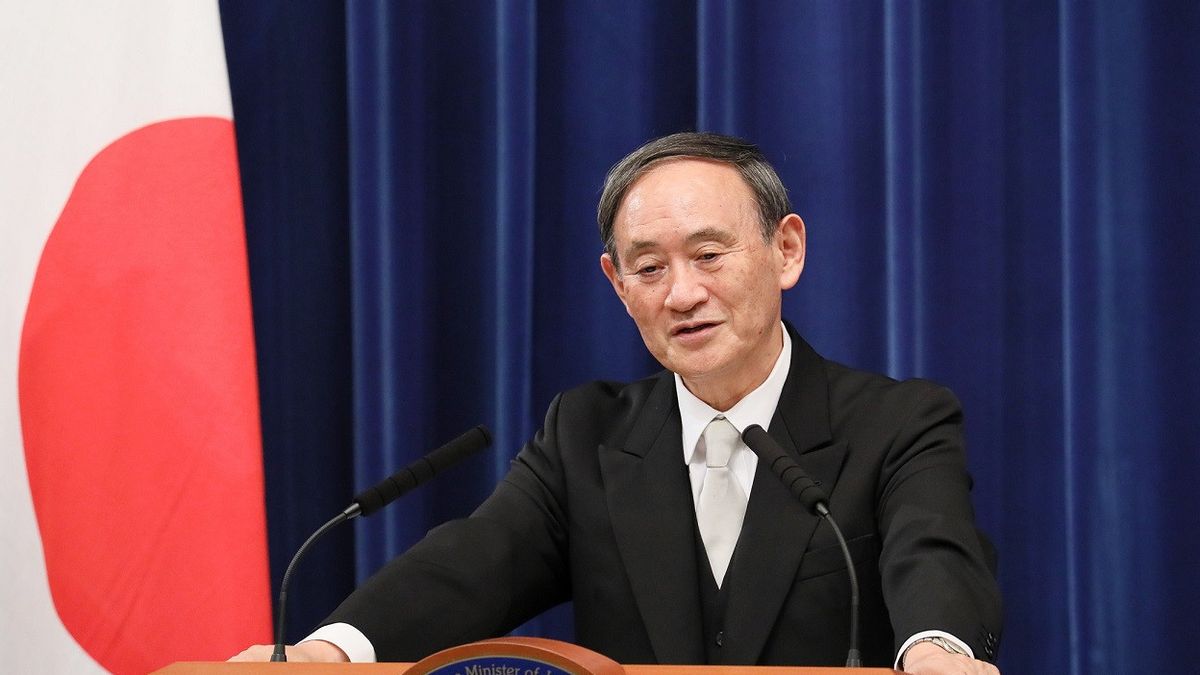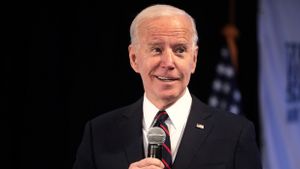JAKARTA - Japanese Prime Minister Yoshihide Suga has announced that he will not be running for a second term as leader of the ruling Liberal Democratic Party (LDP), ending his tenure as prime minister.
Three names are said to be competing in the party leadership election on September 29, namely former foreign minister Fumio Kishida, Minister for COVID-19 Vaccine Affairs Taro Kono, and former interior minister Sanae Takaichi.
Grassroots LDP members will elect Yoshihide Suga's successor in a joint leadership election with party lawmakers. Whoever wins will lead the party to lower house elections to be held on November 28, making public attractiveness an important factor in choosing a new leader.
Cited from Reuters, Wednesday, September 8, Japan must seek a new form of capitalism to reduce income inequality that has worsened under the coronavirus pandemic, said Fumio Kishida, who hopes to become the leader of the ruling party and the next prime minister. Kishida is the only member of the Liberal Democratic Party (LDP) to announce his candidacy in a leadership vote on September 29.
Meanwhile, popular COVID-19 vaccination minister Taro Kono and former interior minister Sanae Takaichi have hinted at their ambition to run. Takaichi is expected to announce his candidacy this Wednesday. If successful, she will become Japan's first female leader.
Kishida said the neoliberalism and deregulation adopted by Japan during the reform era of former prime minister Junichiro Koizumi in the early 2000s had widened the gap between the rich and the poor in society.
"Without the distribution of wealth, there will be no increase in consumption and demand. There will be no further growth if the distribution of wealth disappears", Kishida said at the presentation of his economic proposal in Tokyo.
Kishida repeated calls for an economic stimulus package worth tens of trillions of yen to fight the coronavirus pandemic. He said he would use fiscal spending to achieve economic stability while not giving in to fiscal consolidation.
In addition, he said the Bank of Japan should keep its 2 percent inflation target as the global standard, changing it would send the wrong message to markets and would leave the sales tax untouched for now.
Later, Kishida also called for setting up a 10 trillion yen university fund to stimulate science and the promotion of renewable energy, while maintaining nuclear power technology, which he said should be considered as a clean energy option.
Meanwhile, Takaichi will base his candidacy on policies to fend off China's technological threats, helping strengthen an economy hit hard by the coronavirus pandemic.
Takaichi became the first female interior affairs minister in Shinzo Abe's second term in 2014. Although local media say the influential Abe helped him get 20 votes in parliament to run for office, he is said to have a poor popularity rating.
SEE ALSO:
Takaichi said she wanted to address issues that had not been resolved by the previous administration, such as achieving 2 percent inflation and introducing laws that prevent the leakage of sensitive information into China. She said additional budgets needed to be drawn up as soon as possible to improve Japan's medical system, which is under pressure due to the pandemic.
As a member of the party's most conservative wing, she often visits Yasukuni Shrine, a memorial to Japan's war dead. Such visits by Japanese leaders anger old wartime foes such as China and South Korea.
She also opposed allowing married couples to keep separate surnames, which upset women's rights advocates. Takaichi is scheduled to speak at 4 p.m. this afternoon local time.
The English, Chinese, Japanese, Arabic, and French versions are automatically generated by the AI. So there may still be inaccuracies in translating, please always see Indonesian as our main language. (system supported by DigitalSiber.id)


















